Do you remember when you were a child, once you got a cold and suffering from a sore throat, grandma would give you a cup of horrible taste herbal tea. The amazing was, the symptom would get good in a short time after taking. Yes, there are various herbal tea recipes for curing sore throat in the folk remedies, and they got an excellent effect on the disease.
What Causes Sore Throat?
The reasons that cause sore throat are different, and not all the herbal teas work. Even in folk remedies, the treatment should go according to the disease.
Most of the sore throat caused by the inflammation or bacterial /viral infection, especially during the cold weather and flu seasons. Once you got a severe sore throat, become hard to speak, swallow, feeling throat swollen, and even challenging to drink water, the first and the best thing you should do is go to your doctor.
No matter what kind of herbal teas, it only can do the adjuvant therapy job. Try the drink without any doctor’s advice may make the illness getting worse, even lost your voice.
The mild case is the throat got a slight tickling feeling after a long time speaking or singing, and the voice became hoarse. That’s because of the vocal cords abrased, in this case, the symptom would self turn good after a few days, and taking some related herbal tea can help it faster.
Besides, chronic pharyngitis patients always got sore throat trouble.
Traditional Herbal Tea For Sore Throat Relieve
So many kinds of herbal tea, which one is the best? Here come 9 popular traditional herbs, some of them even been consumed for hundreds of years in folks, may help you relieve the pain.
Slippery Elm Bark Tea
Slippery elm is an America originated plant, which been used by the aborigines as naturopathy for a long time, and tea bags with these ingredients also sold on the markets.
The part of it to make tea is the inner bark of slippery elm, not the surface. Ground the slippery elm bark to powder and mix water to make tea. The tea is gel-like and almost tasteless.
Slippery elm tea can form a mucosa on the throat to relieve the pain, inflammation, stimulation, and protect it. It also helps inhibition of cough, especially in the case of pharyngitis, which causes by cold and flu.
Side effects: Slippery elm bark tea is likely safe, but for health and safety reasons, pregnant should avoid consuming.
Licorice Root Tea
Licorice is origin in southern Europe and some regions of Asia, taken as a seasoner and medicine all the time, what we know most is the snack licorice stick. And tea made of the licorice root is the best helper with sore throat remission.
The licorice root is rich in many nutrition facts such as glycyrrhizic acid and glycyrrhizin, and all of them have excellent anti-inflammatory benefits, help get rids of the throat pain, and relieve bronchial congestion, play the role of cough and phlegm at the same time.
But relative to its benefits, the side effects of licorice root deserves more attention. Licorice contains opium facts, which can be addictive. This medicine contains licorice ever regarded as contraband in most countries. Besides, a long-term licorice root tea consumption may cause kinds of awful side effects. If you only want to get rid of sore throat, other types of herbal teas may be better ideas.
Side effects, including but not limited:
- Headache
- ED(erectile dysfunction)
- Hypertension
- Addiction
- Edema
- Premature delivery
Marshmallow Tea
Althaea is native to Europe, the other name we familiar with is Marshmallow. Every time autumn comes, many people begin to get a tickling feeling in the throat; that may mean you gonna get a cold. In the old days, once the kids appear this symptom, parents would feed them the bake marshmallows, to prevent them from catching a cold.
Look at the spelling of the Marshmallow, we can see it is derived from the name of the plant(Mallow) and the growing environment(Marsh). The leaves, flowers, and roots of it are rich in a gelatinous mass, especially the roots, which the most used part of the herbologist. The herbal tea made of marshmallow root can calm down the stimulated mucosal tissue, take effect on the disease such as sore throat, cough, and bronchial infection.
It is said the ancient Egyptian used to make a throat lozenge with the marshmallow root juice, combine with honey, to help cure throat upset.
Side effects: Marshmallow root tea is considered safe, but pregnant women and diabetes patients are not recommended to consume.
Chamomile Tea
Chamomile tea is a typical herbal tea for many families, loved by people because of its pleasant taste. It also called “Earth Apple.”
In the past folk remedies, people like to have a cup of chamomile tea once they catch a cold. By inhaling the tea steam to soothes a stuffy nose and relieves a sore throat caused by colds. Scientists thought the treatment effect might come from the anti-inflammatory of chamomile. Or it took good help on sleeping, make the natural self-healing power works better.
Side effects: People who are allergic to the daisy family plant should take care of it
Learn more on: 8 Reasons Chamomile Tea May Be The Best Herbal Tea
Peppermint Tea
Peppermint is known well to everybody, the amazing cool taste, usually used as the ingredients of the seasoner, ointment, and essential oil. Peppermint tea is also an ordinary herbal tea, the menthol it contains has excellent anti-inflammatory and killing bacteria property. People mainly use it to treat colds, itchy throat, and breathing problems.
When you are having peppermint tea, try inhaling the tea steam, it may help with the stuffy nose caused by colds.
Side effects: Peppermint tea is likely safe. But personally, I don’t think it is the best choice. Because the over cool taste makes stimulate the throat, to somebody, it may make the discomfort getting worse.
Monk fruit Tea
Monk fruit is short for Siraitia grosvenorii, which originated in China. The fruits after dried can making tea. Maybe you never heard about it, but in China, it is famous. Traditional Chinese Medicine thought it has benefits of relieving a cough, moisten throat, and lung.
For the teachers and singers, having monk fruit tea can relieve the hoarseness voice caused by a long time speaking. And to most chronic pharyngitis patients, this kind of herbal tea can help them reduce the trouble from the disease.
Different from most herbal teas, monk fruit tea tastes very sweet. Because it contains mogroside, which sweeter than sugar 240 times. And mogroside is not a kind of glucose, it means it takes less effect on getting obesity, what good news to the people who love sweets.
Related Reading: Monk Fruit Tea – Best Sugar-Free Drink For Who Has A Sweet Tooth
Side effects: Traditional Chinese Medicine thought intake too much monk fruit tea because the sweet taste may harmful to the spleen and the stomach.
Honeysuckle Tea
Honeysuckle is a popular herb in China, and it is one of the main ingredients of most Chinese patent medicine. The honeysuckle tea also the loved beverage for the sore throat of many traditional families. But unfortunately, the tea tastes so bitter, and not everyone likes it.
Honeysuckle is rich in chlorogenic acid, isochlorogenic acid, and luteolin, all of them have an excellent benefit on anti-inflammatory, and an inhibiting effect on the Typhoid bacillus and Staphylococcus aureus.
In the sore throat treatment, honeysuckle tea maybe the fastest and best one. And in the Chinese Traditional Medicine theory, honeysuckle tea also helps the body detox and eliminate whelk.
Side effect:
- Honeysuckle tea is not recommended for long-term and large dose consumption, or it may cause diarrhea.
- Women who during menstrual and pregnancy should avoid it.
Turmeric Tea
Turmeric originated in Asia. People gound the turmeric root to powder to make flavor and dyestuff. We are most familiar with the curry take it as the main ingredient. And turmeric also has been used as a herbal remedy in Ayurvedic in India and Traditional Chinese Medicine for thousands of years.
The research found that even though the curcumin contented in turmeric has a great property on anti-inflammation and sterilize. Still, its bioavailability is relatively low orally administered. Even some recent academic research on turmeric is proved fraudulent, make people raise questions about its exact efficacy.
Even so, most people express that their sore throat improved after having turmeric tea. Maybe the warm taste of it increases the bloodstream of the throat, so that relieves the inflammation.
Side effects: Turmeric is considered safe. But there is not enough evidence to prove the safety of women taking turmeric tea during pregnancy.
Sage Tea
Sage belongs to the same family with mint, also got a refreshing flavor. It rich in the antioxidant such as ellagic acid and rosmarinic acid have a significant anti-inflammation effect. Sage tea used to help freshen breath(sage is the primary ingredient of most mouth wash), and women are often having it after delivery, for ablactation, or reduce milk secretion.
Thanks to the antioxidant power of sage, drinking sage tea is also great for treating sore throats, and its cool taste helps soothe swollen throats.
Side effects: Some kind of sage contains thujone, which is neurotoxic, long-term consumption is regarded as not safe, may cause:
- Hypoglycemia
- Hypertension
- Epileptic seizure
- Abortion
- Nausea
Takeaway
- Although these herbal teas have been used in folk remedies for many years, it is best to consult your doctor before taking them to be safe.
- When you are going to having herbal teas for sore throat, it must brew with hot water. The cold or frozen drinks can cause more stimulation to the inflamed throat, worsening into a cough.
- For some herbal teas with unlikable taste, you can add some honey and lemon juice for flavoring. These two also play an outstanding role in curing sore throat, even brew them with hot water alone is awesome.


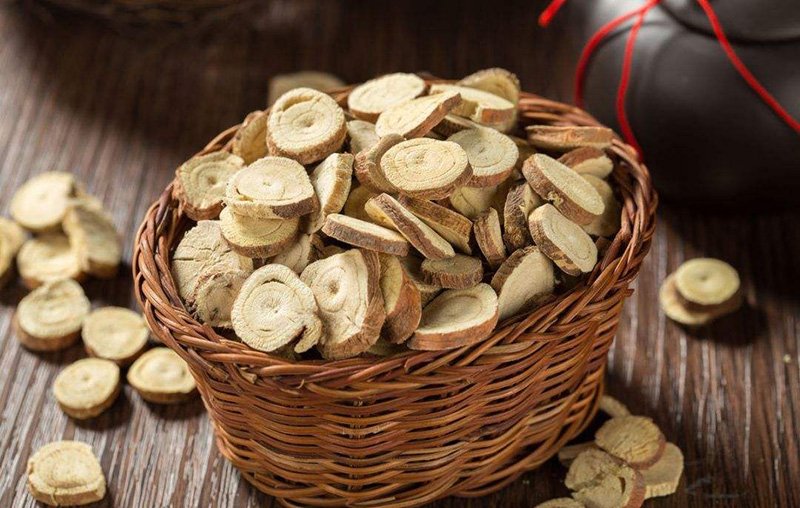
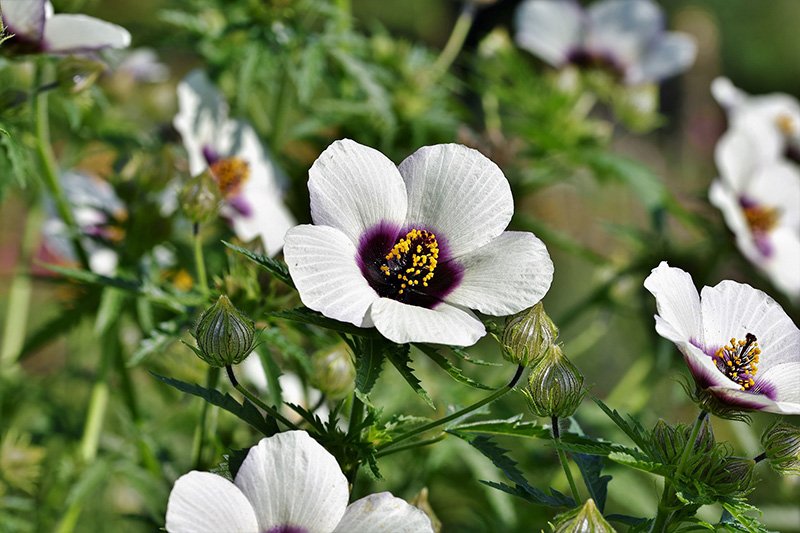

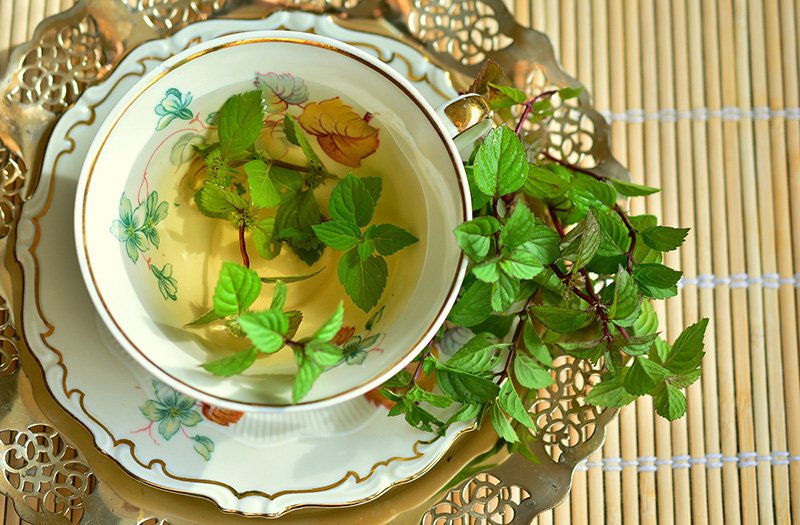
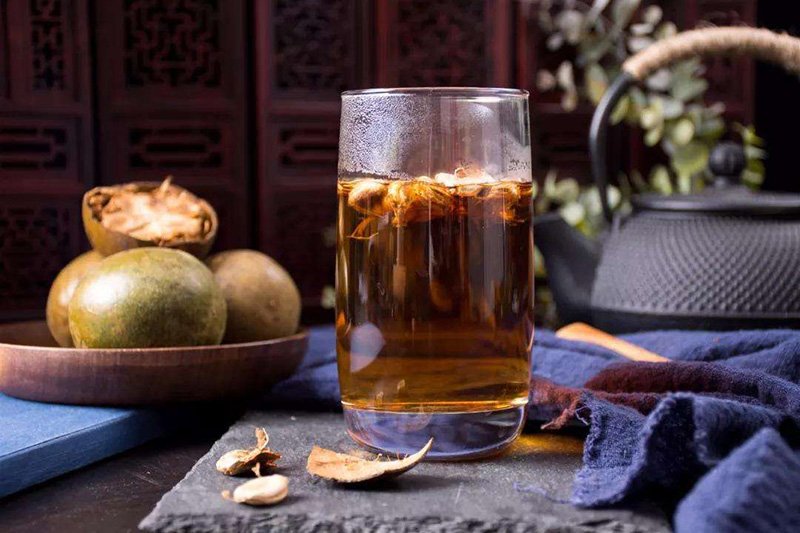


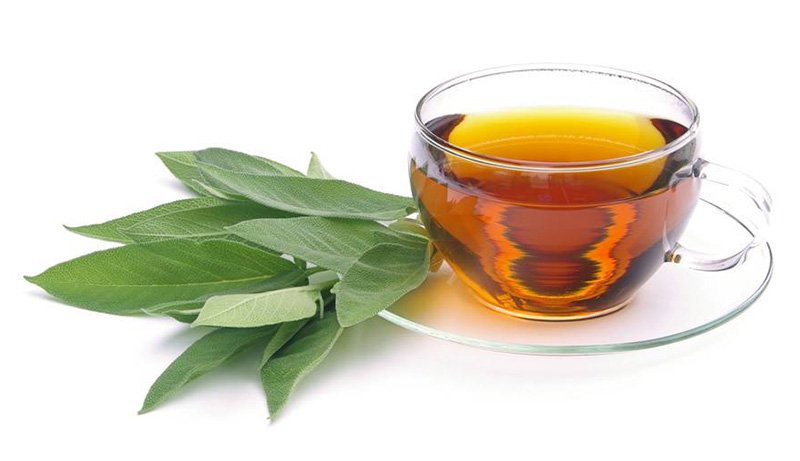
No comments:
Post a Comment